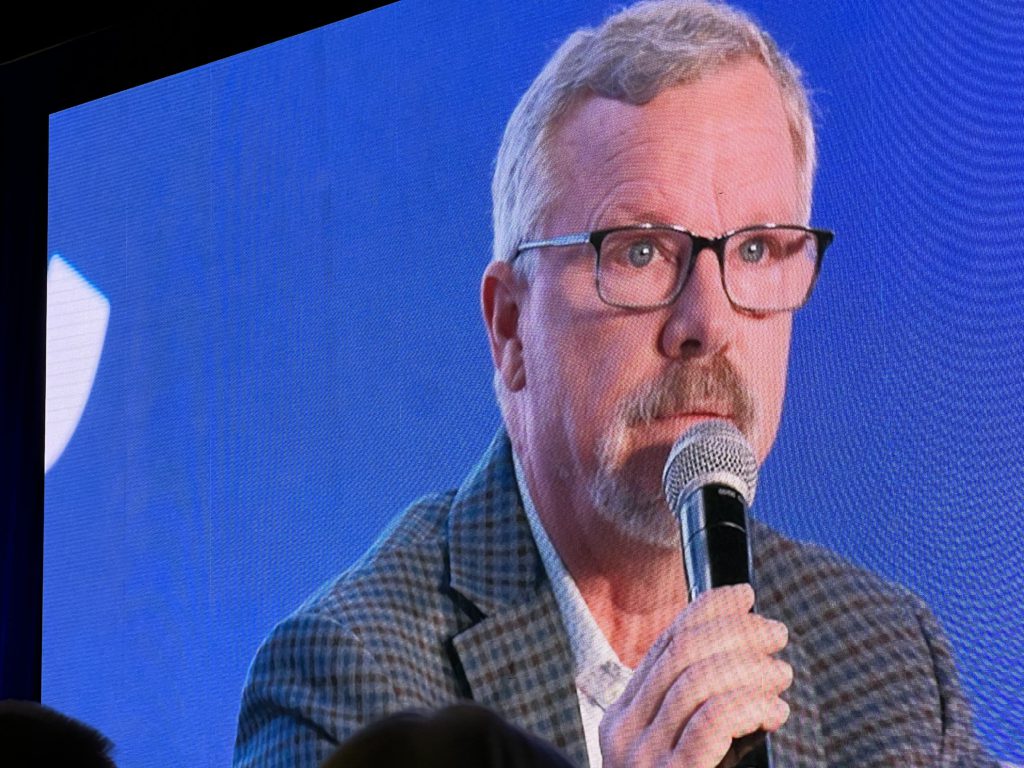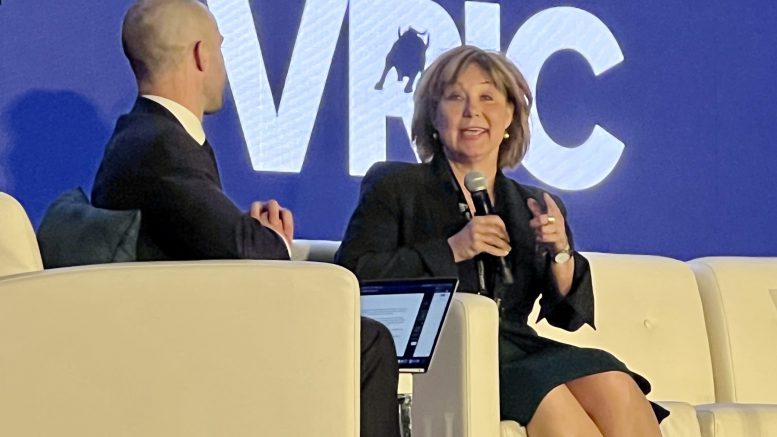Concern is growing over the federal government’s seeming inability to leverage Canada’s vast natural resource endowment as it navigates the uncertain global geopolitical and economic landscape, an industry event in Vancouver heard this week.
Besides examining resource sector investment opportunities closely, Vancouver Resource Investment Conference (VRIC) organizer and Cambridge House International president, Jay Martin, delved into the political sphere.
He questioned whether Alberta and Saskatchewan’s recent passing of two bills, respectively, aimed at allowing the provincial governments to veto specific federal mandates, was the most pivotal moment in Canada’s recent political history.
“The reason for asking this question is that we’ve seen important legislation put forward from two provinces, the Alberta Sovereignty Act and the Saskatchewan First Act. Both pieces of legislation were built to allow the provinces to emancipate themselves from the decisions of our federal leaders,” Martin explained.
He wondered about the disconnect when it comes to Canada’s inability or unwillingness to leverage its resource economy to its benefit and that of its allies.
Former British Columbia Liberal premier Christy Clark conveyed her disappointment when the chancellor of Germany and the prime minister of Japan, both important trading partners of Canada, recently came pleading for access to Canadian natural gas “because they don’t want to buy from the bad guys in the world anymore,” and Canada sent them home empty handed.
“When Canada’s prime minister decides that as a country, we’re saying ‘no,’ it underlines the fact Canada doesn’t bring anything to the international table anymore. We have so much to bring; instead, the world thinks we’re holding it,” Clark said.
Instead, Germany is forced to sanction new lignite coal mines today – the dirtiest coal in terms of emissions. Perhaps adding fuel to Canada’s resource export predicament is the Gas Exporting Countries Forum (GECF), which on Jan. 29 said that global investment in upstream LNG production and export capacity would require US$9.7 trillion by 2050 to meet demand.
The GECF also said energy demand is expected to rise by 22% by 2050, with natural gas’ share in the energy mix rising from 23% to 26% by 2050. Natural gas trade will expand by more than a third, led by LNG, which will overtake pipeline trade by 2026.
Clark drew a contrast between when she was premier and former Conservative prime minister Stephen Harper, who was able to quickly rally the resource sector during the great financial crisis of 2008 to see Canada emerge as one of the strongest economies among the G8 countries.
“Back then, Canada decided that we would streamline the permitting process, make it one project, one approval process. And that was a fundamental change that helped speed up the system,” Clark said.
She stressed that money comes from the private sector, and one can’t afford to smother the private sector and think the money will keep coming in. Then the government changed, and the industry was faced with “a whole different kettle of fish,” Clark said.
“Most notably, the one process, one project system got cancelled, and Canada went back to a complicated multi-layered system which the federal government is again saying they’re going to harmonize,” Clark said. She echoes industry frustration with the seemingly endless moving of the goalposts in the project environmental assessment and permitting processes.
Legislative wrecking ball
Former Saskatchewan premier Brad Wall told the VRIC he was shocked to see Alberta table this kind of legislation. “I never thought I would see the day when Alberta would go from being passionately Canadian, and wanting ‘in’ on confederation, pivot to fighting for a way out,” Wall said, adding it spoke in both Alberta and Saskatchewan’s cases about an intense sense of alienation from the federal government.

Former Saskatchewan premier Brad Wall speaks at VRIC 2023. Henry Lazenby photo
He accused Ottawa of playing fast and loose with Canadian national unity “especially around this invented conflict between protecting the environment and extracting resources,” Wall said. “And they’re setting provinces against each other. We find what people feel when parts of the country say, ‘we don’t want your dirty oil, we don’t want your filthy resources,’ that the people who work in those sectors feel totally invalidated. They feel like their way of life is being disregarded. They feel like the dignity of their work is being downgraded. And I think most of all, people feel like the rest of the country is ungrateful for what Western Canada contributes,” Wall said.
He argued the resource sector was the one thing that could once more unite Canadians passionately, especially in the context of providing better-sourced petroleum products and the critical minerals the new global green economy craves.
“Saskatchewan and Alberta don’t want to leave. All they want is to be respected,” Wall said.
The former premier pointed out that the two provincial bills received unanimous partisan support, which is another strong indicator of the level of regional discontent.
From Saskatchewan’s perspective, the Saskatchewan First Act was born of a concern about federal jurisdiction creep into clearly provincial jurisdictions, Wall said
“It’s the manifestation of what you see happening on Bill C-69, where I think now nine provinces have joined with the Alberta government’s appeal of Bill C-69,” Wall said, citing other examples, including the imposition of the federal carbon tax and its subsequent hikes.
“The federal government is essentially taking a wrecking ball to Section 92 of the Constitution Act of our Canadian Constitution. Saskatchewan will decide for itself the regulation of environmental standards, greenhouse gas emissions and other emissions and the source of fuel for electrical generation. Well, that’s exactly what Section 92 of the constitution already gives the provinces the right to do,” Wall noted.
Resources for healthcare
According to Clark, the most critical issue facing Canadians right now is perceived to be healthcare, and in particular how it’s funded, which comes mainly from the energy sector.
According to Clark, Canada’s healthcare system is projected to grow in cost at a rate of 5.6% annually for the next decade. It makes up 40% of provincial budgets across the country. But according to OECD projections, Canada’s economy is predicted to grow at a rate of only 0.8% in the next decade.
“In other words, we have a very slow-growing economy, trying to support a very fast-growing social welfare system,” Clark said.
“We need to grow the economy faster. I would argue the single most important thing in building Canada has been the resource sector – oil, gas, metals, and minerals – we need to grow those sectors. We need to grow investment activity and employment. And that’s how we will save our healthcare system in Canada. The resource sector is the single largest contributor to our GDP,” Clark said.


We do not need resources.We have the Canadian credit card and the self balancing budget.